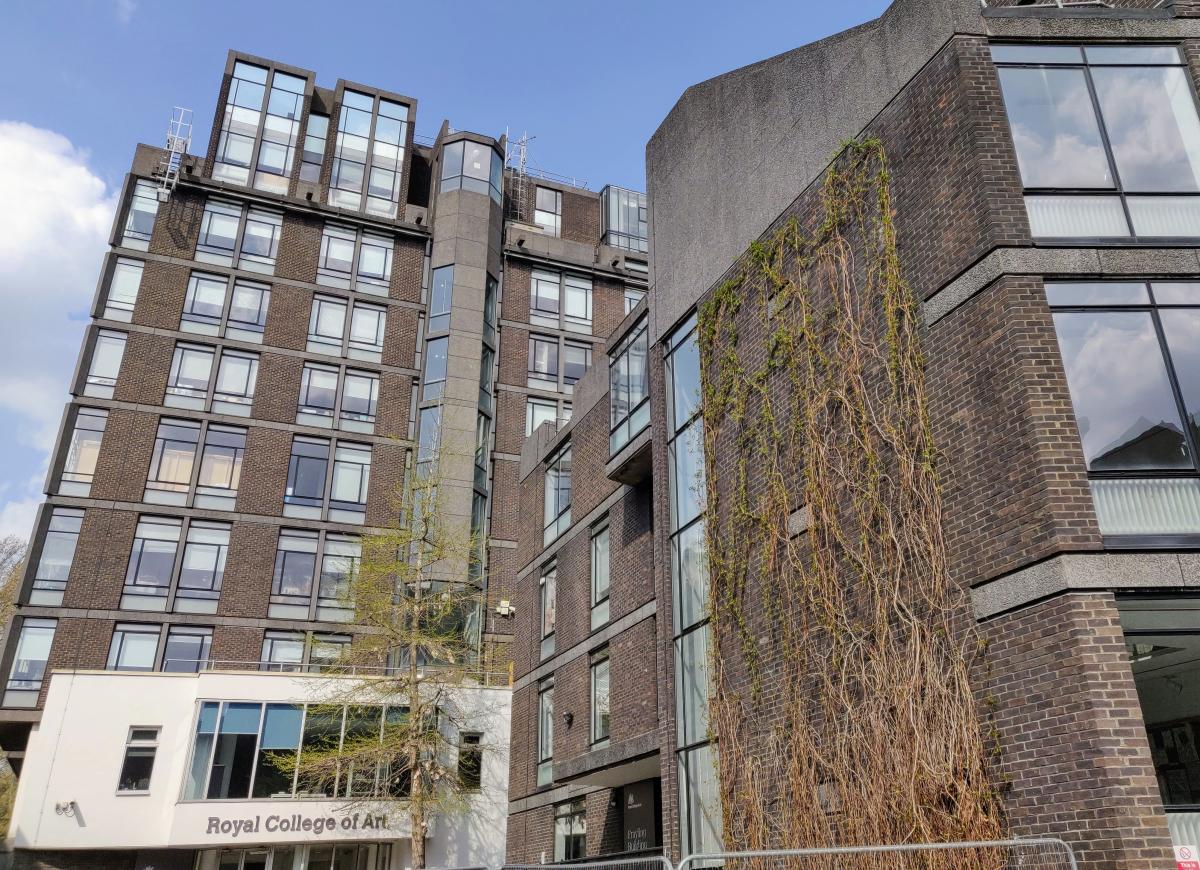Case study: Royal College of Art estate, Westminster and Wandsworth

Developing a heat decarbonisation plan for nine gas-heated buildings in the Royal College of Art estate.
What is the project?
Project stage: Plan
This project aims to create a holistic roadmap for achieving net zero by 2035, focusing on energy reduction measures, low-carbon heating and fabric improvements. This involves carrying out a technical feasibility study of decarbonisation options for the Royal College of Art (RCA) estates in Westminster and Wandsworth, to inform a decarbonisation strategy and plan.
The feasibility study will include:
- an initial assessment and data collection
- a technical evaluation of decarbonisation options to determine suitability for energy partnerships
- an economic analysis
- a regulatory and policy review
- a risk identification and assessment.
This approach ensures that the feasibility study report is comprehensive, includes actionable recommendations and identifies options for delivery. The Zero Carbon Accelerator will also evaluate an ongoing refurbishment project to understand what best practice looks like from a net zero perspective. The evaluation will help form guidance for other organisations.
The decarbonisation strategy being developed through this work will target a carbon emissions reduction of 830t.CO2 per year by 2030.
“The Zero Carbon Accelerator has played a critical role in supporting the RCA’s decarbonisation journey. The programme has been supportive right from the Expression of Interest stage and guided us through the whole application process to the project delivery.
“We’ve been able to benefit from specialist knowledge and experience as we create our decarbonisation roadmap. The outcomes of this will help us to continue decarbonising our estate, and understand the future interventions and investments required to achieve net zero.”Megan Jones, Environmental Sustainability Manager at the Royal College of Art
Who does it support?
The Royal College of Art, one of the world’s most influential postgraduate art and design institutions.
What support is being offered?
Various partners in the Zero Carbon Accelerator Alliance are enabling and supporting this project delivery.
Mott MacDonald is managing this project and delivering several aspects:
- applying technical expertise
- drawing on experience in non-domestic refurbishment
- undertaking feasibility studies
- carrying out energy and building audits.
Pascall+Watson is delivering the retrofit assessments and surveys, drawing on their significant architectural refurbishment and retrofit expertise.
What technology is involved?
Non-domestic energy efficiency and heat decarbonisation.
Technologies explored and considered includes:
- fabric measures
- energy efficiency interventions
- decarbonised heating systems.
What tenures/building types are included?
Nine buildings across two campuses (Westminster and Wandsworth) of the RCA estate have been assessed as part of this work. These buildings include:
- workshops
- offices
- meeting spaces
- libraries
- teaching spaces
- studios
- eating spaces.
Several teaching and studio spaces also contain specialist and energy intensive equipment, such as kilns and glass furnaces. The buildings within the project scope vary significantly in size and in age, including:
- Grade II listed buildings
- 1870s builds
- newer builds designed to BREEAM Excellent ratings.
How does this project align with the Zero Carbon Accelerator’s principles?
This project aligns with the Zero Carbon Accelerator’s ambition to build knowledge and capacity. This work will produce a range of materials, templates and guidance which will be shared on the Zero Carbon Accelerator’s Knowledge Hub.
It evaluates and aligns estate refurbishment with net zero, feeding into a best practice guide and usable checklist on this topic. The project will also explore opportunities to link the RCA strategy with energy partners, such as other members of South Ken Zen+.
What Knowledge Hub resources are we creating?
Training materials:
- best practice guidance for aligning estate refurbishment with net zero
- best practice and specific recommendations for decarbonising specialist kiln processes.
Tools and templates
- refurbishing for net zero checklist
- template for small/medium estate net zero route map.
Datasets
- higher education building consumption profiles
- measures and approaches appropriate for higher education institutions.
What’s the project timeline?
The project runs from April 2025 to August 2025.